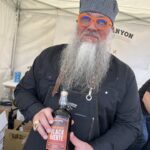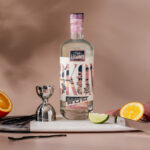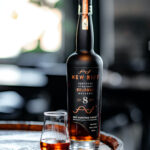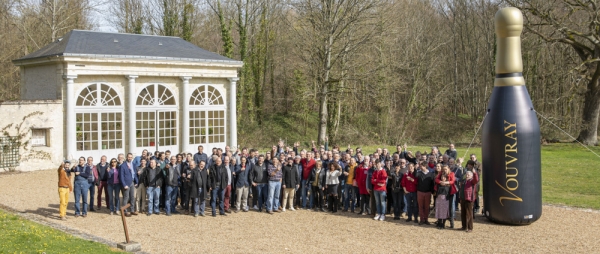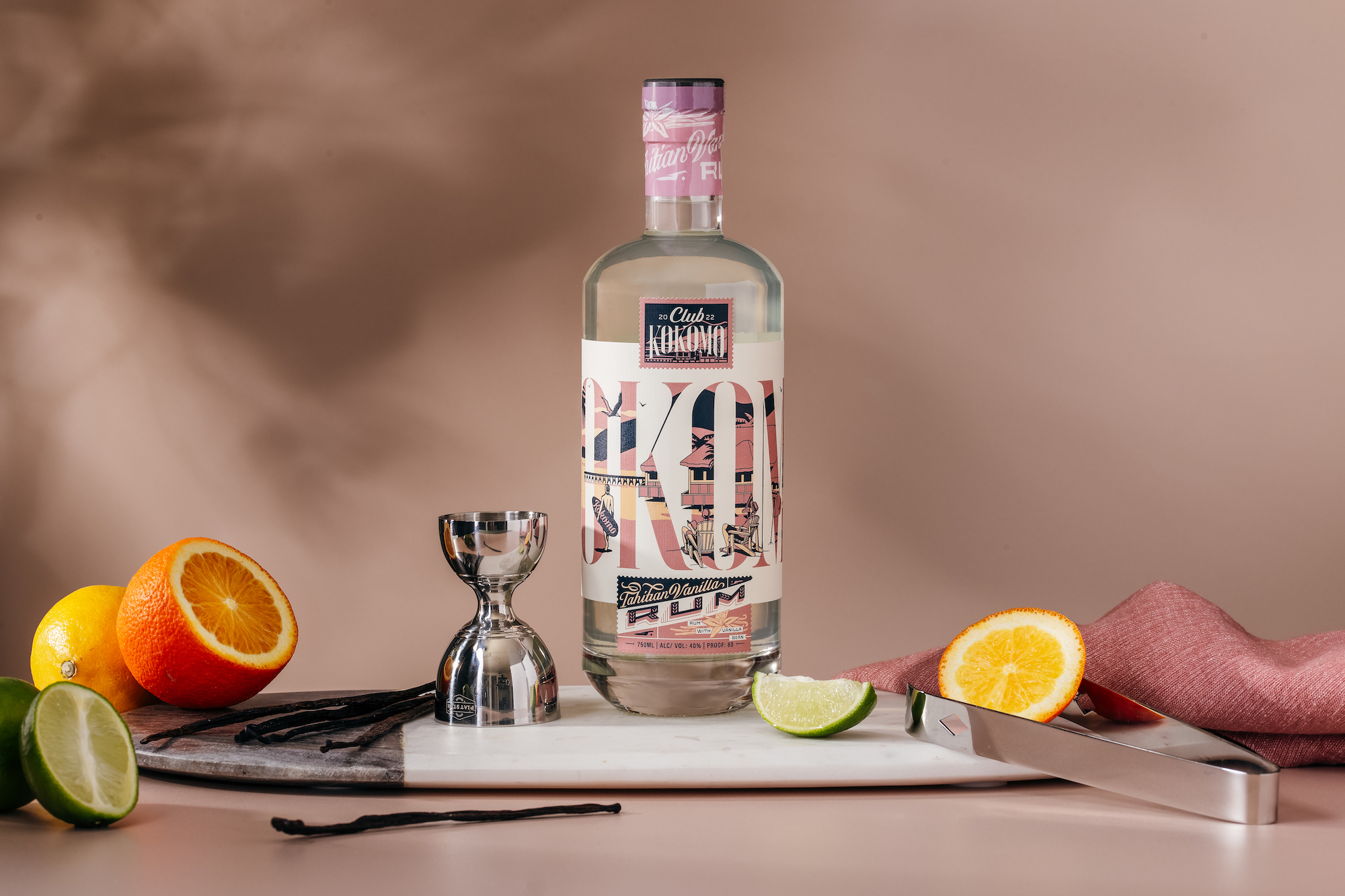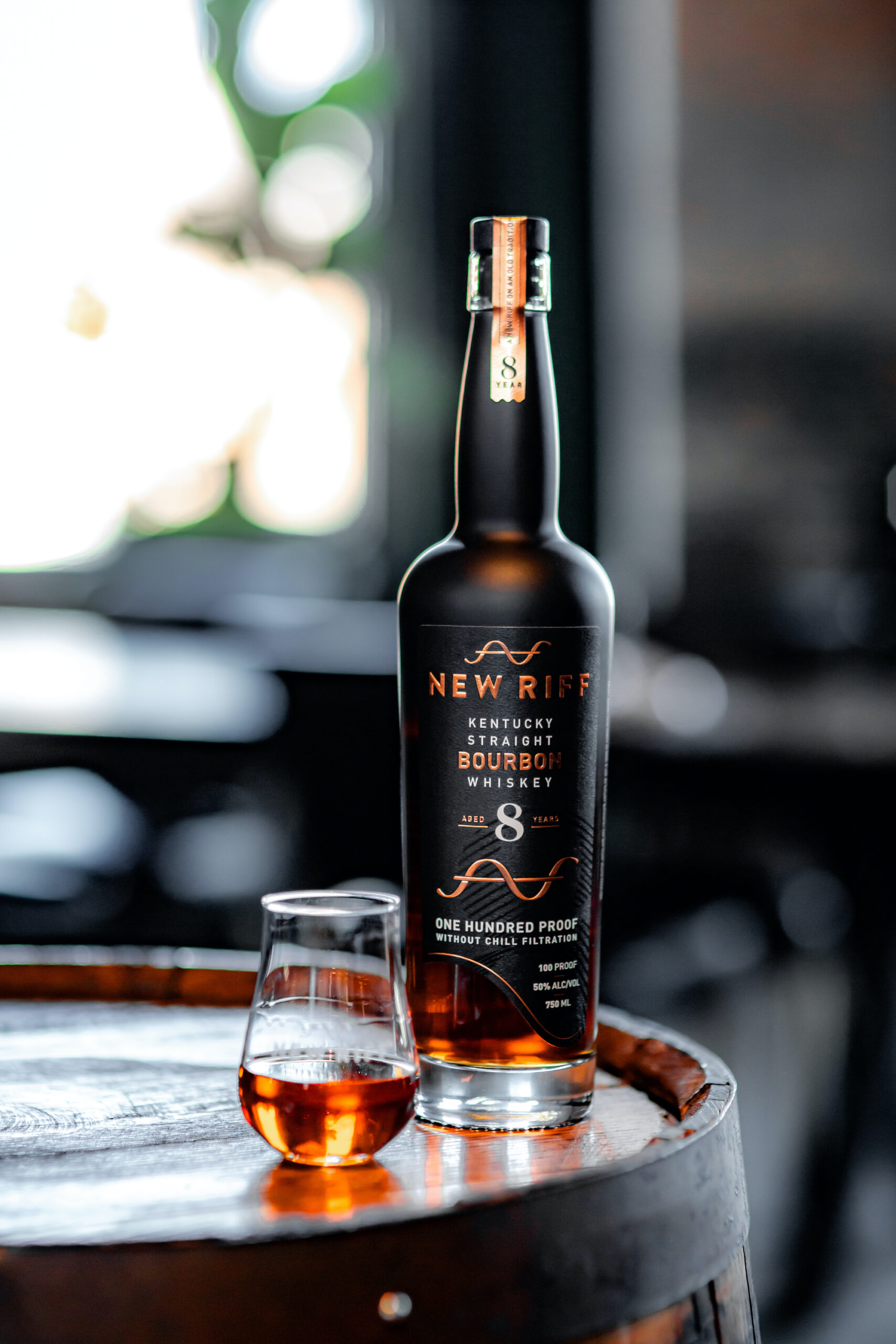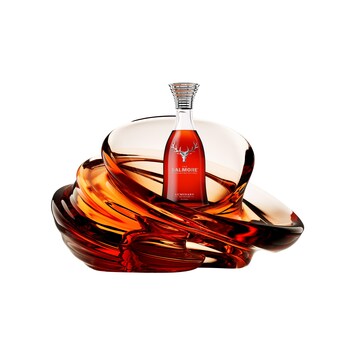
My “Cultural Appreciation of Wine” class, taught at Napa Valley College by Paul Wagner, started out with a discussion of what students did for Thanksgiving.
Some students had family traditions that they repeated. Others recited menus or past holiday experiences. The discussion was lively and light hearted, as many of the class discussions are. It was a good way to get back into the swing of class, after being off all last week.
Paul had a lot of ground to cover tonight.
Various issues and reasons had put the class behind schedule for this semester. There are only two more classes remaining after tonight, and we still have not covered the chapters on The Service Ritual and The Toast, Wine and Politics and we have not taken our exam on proper bota bag use.
So off to Wine and Politics it will be.
Politics and wine are as intertwined as Cabernet Sauvignon vines on a trellis.
The lecture started with a question. “Why are French wines so famous?” Answer: “The British.” French wines were not made famous by French consumers. The British had long quenched their thirst for high quality wines with Bordeauxs, Burgundys and Rhones. Geographic and political considerations made France the prime source of wines for England. Portugal was also a beneficiary of political alliances with England, built over wine. In 1703, the Methuen Treaty was signed between England and Portugal. This was a commercial treaty between Portugal and England which established that English textiles would be accepted in Portugal and that the Portuguese wines would be preferred in England, by paying only two thirds of the rates negotiated with the French. The English involvement in the port trade can be seen in the names of many port shippers: Cockburn, Croft, Dow, Gould, Graham, Sandeman, Taylor and Warre, among others. This domination of the port trade in Portugal is as a direct consequence of the Methuen Treaty.
The rightly famous “Cristal” Champagne, from Roederer in France, was originally created for Czar Alexander II of Russia in 1876. This wine’s political role is a curious one. In politically unstable Russia, Alexander demanded that the wines he consumed by bottled in clear glass, with a flat bottom bottle, in order to foil attempts to assassinate him with a bomb hidden in a Champagne bottle. Roederer complied by hiring a Flemmish glass maker to create a bottle with these attributes. The rest is high priced history. Today, a bottle will set you back about $250.
Paul went on to talk about the King of Spain and the New World, in the times of the Conquistadores and the politics and wines of the time. In 1524, Conquistador Hernando Cortez ordered every Spaniard with a land grant from the crown, to plant 1,000 grape vines for every 100 Indians in his employ, every year, for five years. Unfortunately, this didn’t sit well with the King. The King could only tax wines made on the Iberian Peninsula and not the new world. As more wine was made in the new world and less was shipped from Spain, the King saw his tax revenue reduced. So he did what any self respecting monarch would do, he banned the planting of grapes in the new world.
Now, the biggie. Prohibition in America.
Prohibition is one of the most controversial, politically charged issues in the history of the US.
The roots of prohibition are anchored in the working conditions of the American Industrial Age. Working conditions were dismal. Many factory workers did 80-100 hours per week. The stress that this put on many of them led some to spend their hard earned money in the local saloons. Wages were low to begin with. And with many spending chunks of their wages on self medication, less and less was left for the rest of the family at home.
Carrie Nation didn’t like this.
An imposing person for her time at nearly 6’ and 200lbs, she carried an axe with her and when she came upon an establishment, she would take the axe to the bottles, bars and barrels. She lobbied for, and won, a constitutional amendment called prohibition, that made the selling, buying or transporting of alcohol illegal. Prohibition was passed in 1920 and repealed in 1933. A provision was made for a person to legally make up to 200 gallons for a household. This portion of the law still exists today.
Prohibition of alcohol did in the 1920’s and 30’s for gangsters and criminals, the same thing that marijuana prohibition does today. It made them rich.
During prohibition, organized crime took over the manufacture, distribution and retail sales, albeit underground, of alcohol. They had the perfect vertical business model. Their profits skyrocketed. The control over the alcohol trade spread the violence and corruption that seems to follow the Mob where ever they go. After a decade of prohibition, the US Congress knew that organized crime had to be stopped and the best way to clip those wings would be to repeal the main source of income for the mob. Prohibition had to be repealed. The only way to get prohibition repealed would be to get all the US states aboard. The problem was, the states couldn’t agree on how to do this. So Congress granted individual states the authority to make their own laws on alcohol consumption. This has resulted in an unbelievably confusing system for producers, distributors and retailers, especially those doing business across the country.
Here are some examples of the strange laws regarding alcohol in different states.
In Arizona, drive through liquor stores are allowed.
In Florida, Supermarkets and other licensed business establishments may sell beer, low-alcohol liquors, and wine. Liquor must be sold in dedicated liquor stores which may be in a separate part of a grocery or a drug store. Beer must be sold in quantities of 32ounces or less or greater than 1gallon. 40 and 64 ounce beverages are illegal.
In Georgia, one may not be drunk in public, but there is no Law prohibiting drinking in public. Public drunkenness is only warranted when one is drunk in public and his acts are either loud, or disorderly. Merely staggering or stumbling is not, in and of itself drunk, so it is unclear where the line is between lawful and unlawful behavior.
Kansas’s alcohol laws are among the strictest in the United States. Kansas prohibited all alcohol from 1881 to 1948, and continued to prohibit on-premises sales of alcohol from 1949 to 1987. Sunday sales only have been allowed since 2005. Today, 29 counties still do not permit the on-premises sale of alcohol. 59 counties require a business to receive at least 30% of revenue from food sales to allow on-premises sale of alcohol. Only 17 counties allow general on-premises sales. Not all communities which allow off-premises sales allow sales on Sunday.
In Massachusetts, No individual, partnership, or corporation may have more than three off-premises licenses in the state, nor more than two in any city, nor more than one in any town. That pretty much counts BevMo out. No discounts are allowed at specific times (i.e. no “Happy Hour” discounts) or for specific individuals, no fixed-price open bar or all-you-can-drink (except at private functions), no more than two drinks per individual at any one time, no pitchers for fewer than two people, no drinking contests, no drinks as prizes, no free drinks.
So what do the Kennedys do in their spare time?
In Nevada, State law makes public intoxication legal, and explicitly prohibits any local or state law from making it a public offense.
In Pennsylvania, Wine and spirits can only be sold at State-operated stores. All persons must be at least 21 years of age to enter a state-operated liquor store alone. Beer is not sold at state-operated liquor stores. Beer can be purchased at beverage outlets (cases only), or restaurants (6-packs/restricted quantities) with Liquor Control Board–issued licenses, but not supermarkets. Non-alcoholic beer is an exception, and may be sold in supermarkets, but persons buying it still must be at least 21 years of age. Grain alcohol is illegal.
And that is just a few of the states. Further complicating things for distributors, many states allow individual counties to make their own laws. Today, we still deal with the consequences of the laws made in the 1930’s.
Anthony Blackburn is a student at Napa Valley College in the Viticulture and Winery Technology Department. He is also the Student Sales and Marketing Intern responsible for selling the wines made by the students in the student winery. www.napavalley.edu/winery


